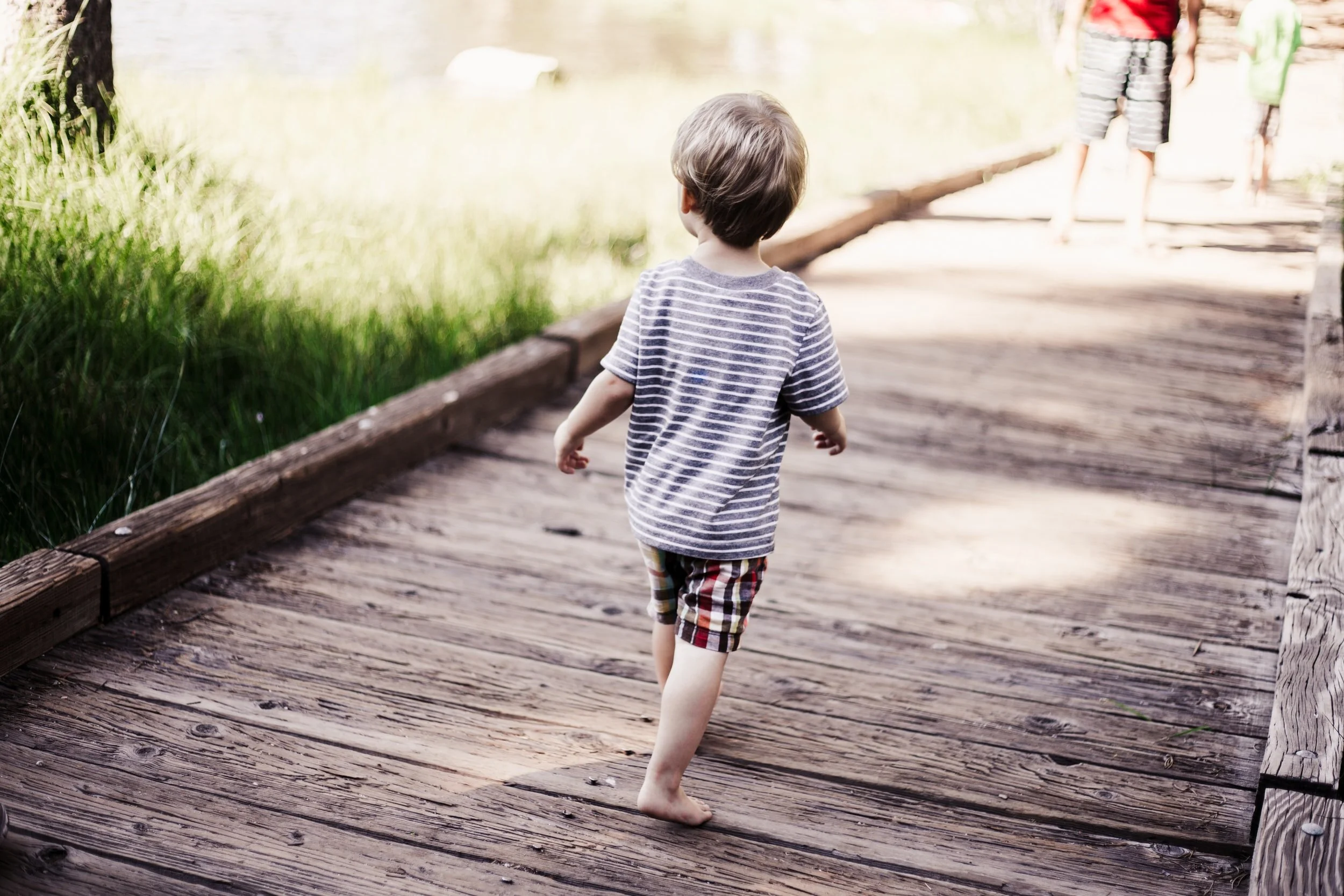How young is too young to see a counselor? Every week, I talk to parents on the phone who are trying to figure this out. Starting therapy can feel like a big step, and nobody wants to jump the gun. On one hand, a child may be passing through a phase that will resolve on its own. On the other, behavior struggles are tough for the whole family even if it is “just a phase.” In this post, I’ll unpack how old a child needs to be to benefit from therapy. I’ll also share tips on what to expect in counseling according to age, and signs that you should consider getting help.
The Younger the Child, The More Involved You’ll Be in Therapy
When you imagine what therapy looks like, you probably envision the patient sitting alone in a room with their counselor. Individual therapy is the most common form of therapy in the U.S., especially for adults. Things look a little different for kids in therapy. Depending on their age and developmental level, kids don’t always get the most benefit from working 1-on-1 with their therapist. As a rule of thumb, the younger your child is, the more time you can expect to spend in the room with your child’s counselor.
Parents are the center of a young child’s life. Little kids look to their caregivers to decide how they should think, feel, and act. Their connection with their parent is what helps them feel safe. Because your young child takes so many cues from you, it’s hard to create any lasting change in therapy if you aren’t kept in the loop.
Can Really Little Kids Benefit From Counseling?
You might be surprised to learn that special forms of therapy exist to help babies and toddlers with emotional problems. This type of therapy always includes the parent and child together, and helps the parent learn new ways to soothe their baby and deal with hard behavior. This can be especially helpful for young children who have survived trauma.
When I see preschoolers in therapy, I try to have parents join for about half the session. That way, we have a chance to learn coping skills together and problem-solve anything new that’s come up during the week. Most preschoolers are able to meet alone for part of their therapy session. However, they’ll need their parents’ help to practice the new things they’re learning in therapy at home.
For elementary-aged kids, it’s still helpful to have a quick check-in at the beginning of the therapy hour. Kids this age usually meet alone most of the time, but will still need reminders and support from parents in between sessions. I like to meet with parents periodically to talk about our progress in therapy, and discuss skills they can use to at home to help their child.
When Can Children Go to Therapy By Themselves?
Many preschoolers can benefit from individual play therapy. In my therapy office, I usually meet with 3-, 4-, and 5-year-old kids alone for half of each session. Preschoolers make sense of their world through play, and can’t always put their feelings into words. This makes play therapy a fantastic option for this age group, since it builds on a young child’s natural strengths.
I usually start seeing children for therapy by themselves around ages 7-9. By this age, kids have gotten used to separating from their parents each day for school. They are more independent, and much more able to verbalize their thoughts and feelings. Elementary school kids are also starting to develop more advanced thinking skills. This makes them a great fit for cognitive behavioral therapy, or CBT, which helps kids learn how to deal with overly negative thoughts and feelings. Parents of elementary school kids should still plan on meeting with their child’s therapist on at least an occasional basis.
By middle and high school, most kids are able to manage therapy almost entirely by themselves. Tweens and teens crave independence and have started forming an identity away from the family unit. Having an unbiased listener to vent feelings to in confidence can be really helpful at this age. While I still work closely with parents of tweens and teens, they don’t usually need to meet with me as frequently.
How to Tell if Your Child Is Old Enough for Therapy
Age isn’t the only thing to consider when deciding whether your child is ready for therapy. Every child is unique and develops at their own pace, so there’s no one-size-fits-all answer. Keep an eye out for these signs to decide whether your child will benefit from one-on-one time with a therapist:
Your child has started make-believe play: for example, they can use an object to represent something else while playing.
Your child can communicate her needs to other people if you aren’t around.
With help, your child can focus on an activity for more than a few minutes.
Your child has started verbalizing thoughts and feelings.
Every child’s situation is different. If your child is meeting milestones at a different pace due to a health condition or developmental delay, they can still benefit from counseling. Look for a therapist who has training in helping children with special needs to make sure you have the best possible fit.
Signs That Therapy Could Help Your Child
It’s totally normal for young children to throw tantrums, fear monsters under the bed, or enjoy using the word “No” whenever possible. So how do you figure out when a problem has gotten big enough to consider therapy? In my experience, the fact that a parent is considering therapy at all is usually a sign that things have gotten too hard to manage.
You don’t have to wait for a crisis to call a therapist. In fact, sometimes it’s nice to get an outside perspective on the typical, every day problems of growing up. Even if you can muddle through a situation on your own, a therapist can help make things easier and less painful for everyone involved.
Here are a few indicators that therapy could help your child:
Your child is struggling with her feelings more than other kids her age
The problems are getting in the way of daily activities like eating, sleeping, play dates, or school
Your child is having difficulty making or keeping friends, or getting along with siblings
The problems started after a stressful event
You’ve noticed that things are getting worse, not better
After you have thought about your child, take a minute to check in with yourself, too. How is your stress level about this issue? Are you feeling so overwhelmed by your child’s emotions that you’re not sure how to help her manage them anymore? Feeling pushed beyond your own limits as a parent is a totally valid reason to look into counseling.
Begin Child Therapy in Charlotte, North Carolina
If you are looking for a child therapist in the Charlotte area, I can help. I’m a children’s counselor and Registered Play Therapist who loves working with kids from preschool through the preteen years. You can meet me for individual or parent-child therapy at my office in Davidson, or join me online from anywhere in North Carolina, New York, or Florida.
Not in one of those states? I can’t provide counseling, but you may be interested in my coping skills class for tweens. It’s an online video course that includes step-by-step help for both kids and parents to better manage anxiety at home.
Have questions about getting started? Learn more about me here, or reach out by phone or email.




